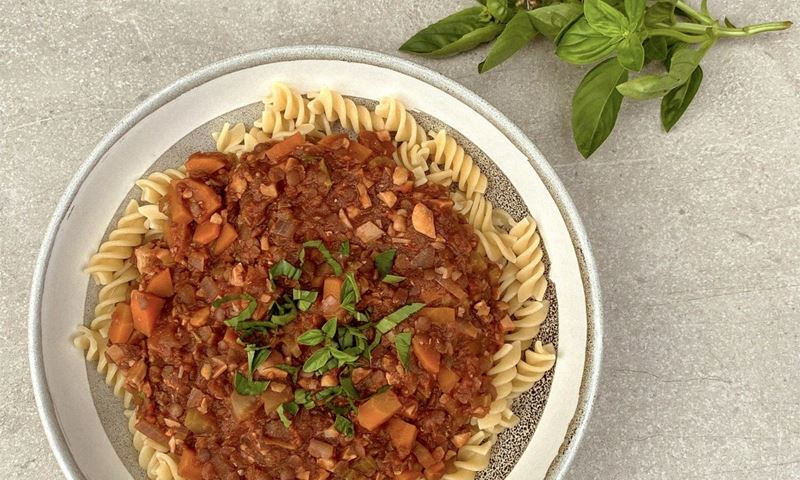Doing oil right
 If you’re like most people, you walk down the cooking oil aisle at your local supermarket, gaping at the wall of bottles, cans and sprays. Why are there so many different oils? What oil do I use and when? Which tastes the best? Can this oil take the heat? Which one do I put in my car? Well, never fear, we’re here to set your mind at rest (and to answer that last question first – don’t put any of these oils in your car!).
If you’re like most people, you walk down the cooking oil aisle at your local supermarket, gaping at the wall of bottles, cans and sprays. Why are there so many different oils? What oil do I use and when? Which tastes the best? Can this oil take the heat? Which one do I put in my car? Well, never fear, we’re here to set your mind at rest (and to answer that last question first – don’t put any of these oils in your car!).
Now, the healthiness of oils can sometimes be confusing. Are they bad, are they good, how much is too much? The short answer is yes, oils are good for you, the slightly longer answer is yes, the right amount of the right oil is good for you. This is because oils are rich in monounsaturated and polyunsaturated fats, which can assist in regulating blood cholesterol and vitamin E which is a fat-soluble antioxidant.
Usage
Oils are rich in fat (around 90-100%) but don’t worry, it’s the saturated fat you have to worry about and most oils have less than 20%. However due to this high fat content (even though it’s good fat) oils should be used in moderation. One to two tablespoons is usually enough for most recipes and dishes. Also be sure you know your oil’s behaviour under heat – the best predictor is ‘oxidative stability’ – the chemical reaction between oil and oxygen. Otherwise, you can utilise the very clear indicator of its smoke point – the point at which the oil starts to visibly smoke – so you don’t ruin your food or accidentally start a fire!
Storing
Oils react to heat and light, so don’t store them too close to the oven or in direct sunlight – a cool, dark cupboard or pantry is perfect. Most oils don’t last more than 6 months, so make sure you check any older oils to make sure they haven’t gone rancid.
Extra Virgin Olive Oil
A cooking staple, Extra Virgin Olive Oil, otherwise known as EVOO, is an unrefined, flavoursome oil, that isn’t treated by chemicals or altered by temperature (hence the ‘virgin’ in its name), meaning it retains more of its vitamins, antioxidants and health benefits. In fact it has the highest antioxidant levels of the oils, and the lowest trans fat levels, which is why it is so good for you with researched benefits including improved cardiovascular health, decreasing inflammation and protection from ageing. Extra Virgin Olive Oil is an all-rounder, perfect for salads, drizzling over dishes, cooking or simply with fresh bread and dukkah. It’s a misnomer that you can’t cook with EVOO. When tested against grapeseed, sunflower, rice bran and canola oils, EVOO was the most stable of oils, producing the lowest levels of potentially harmful substances.
Light Olive Oil
The ‘light’ in Light Olive Oil refers to the flavour and colour of the oil, not the fat content. Since Light Olive Oil is usually chemically treated, it comes with less of the naturally occurring vitamins and antioxidants of Extra Virgin Olive Oil.
Sunflower Oil
Sunflower Oil comes from sunflower seeds and is refined with the use of chemical solvents. This unfortunately strips a lot of the nutrients from the oil. Sunflower oil also contains predominantly omega 6 fatty acids which can be inflammatory when consumed in excess.
 Sesame Oil
Sesame Oil
Extracted from sesame seeds, this oil is a staple in Asian cuisine. It’s packed with monounsaturated and polyunsaturated fats as well as Vitamin K which, aids in blood coagulation. Sesame oil is best to save for using with stir-fries and other Asian inspired dishes due to its bold flavour. Refrigerate this oil after opening.
Peanut Oil
Peanut oil is also a staple of Asian cuisine with its nutty scent and strong flavours. With a high smoke point of around 230°C peanut oil takes stir-fries in its stride and can even be used for deep-frying.
Avocado Oil
As if avocados couldn’t get any better, they also have their own oil. Although Avocado Oil is a little on the pricier side (there goes my dream of owning a house), it’s a delicious, healthy and great multi-purpose oil. You can retain avocados oil’s vitamins and antioxidants by drizzling it fresh on salads and meals.
Canola Oil
Canola oil is extracted from the rapeseed plant (rape coming from the latin rapum for turnip) and although contains omega-3 fatty acids, these can be eradicated through the processing it undergoes at high temperatures. For this reason, choose cold-pressed or expeller-pressed oil where possible. Canola Oil has a rather neutral flavour, so is quite versatile in cooking.
Linseed Oil
Packed with Omega-3s, Linseed (or flaxseed) oil is good as a dressing but not for cooking. Store your linseed oil in the fridge as it and use it sparingly as it can have quite a strong flavour.
Rice Bran Oil
Rich in antioxidants, vitamin E and plant sterols, rice bran oil has a high smoke point, making it great for pan frying and stir-fries. Take note, however, that rice bran oil is not particularly rich in natural antioxidants and is a refined oil – so better to utilise oils, where possible, that contain more health benefits (such as olive oil).
Vegetable Oil
Much like canola oil, vegetable oil has a mild flavour so can be used in a variety of ways, however beware that it is a refined oil and can be high in saturated fat depending on the blend.
Nut Oils
Made from nuts such as almonds, macadamia, pecan and walnut, many of the nut oils shouldn’t be used in cooking due to their low smoke points. Only the nut oils rich in monounsaturated fats can be used for cooking – that means macadamia oil is fine for baking, but walnut oil should be delegated to dressings only.
So who is the winner?
At the end of the day the winning oil is extra virgin olive oil.
- It wins on stability for cooking (canola oil, grapeseed oil and rice bran oil performed the worst)
- Packed full of anti-oxidants which are maintained whilst cooking
- Has versatility plus due to being able to use on a salad, for sautéing, frying or oven baking
- Contains many proven health benefits – the Mediterranean Diet which includes around 55ml of olive oil per day (3 tbsp) has been shown to assist with cardiovascular health, improves blood lipid levels, reduces inflammation, and assists with weight management.
Remember, in order to choose the healthiest olive oil, ensure it’s extra virgin, choose Australian olive oil as it will be fresher than imported and therefore retain more nutrients, look for the Certified Australian EVOO trademark on the bottle to ensure it meets excellent standards, and use within 4-6 weeks from the date of opening. You can find certified Australian brands here.



